
Hong Kong insurers brace for a new regulatory regime from this year
The Office of the Commissioner of Insurance in Hong Kong will be replaced by the Independent Insurance Authority from June 26 . What changes can the insurance industry expect?
If one looks at the work calendars of Hong Kong insurers for the next couple of months, it will likely be jampacked with preparatory tasks for the momentous regulatory shift on June 26 when the Independent Insurance Authority (IIA) replaces the Office of the Commissioner of Insurance (OCI). Firms will be bracing for the new provisions that will be implemented when the authority takes over the statutory functions of the office, and the government collection of authorization fees and user fees on specific services. Legal experts advise insurers to start preparing for the new regulatory regime that is moving away from self-regulation.
Peter Cashin, partner at Kennedys Law LLP (Hong Kong) reckons insurers should consider implementing revised compliance policies and internal controls to facilitate compliance with the new requirements including, for example, the “fit and proper” assessments of relevant officers. These revisions will also improve their ability to respond o the IA’s news powers.
Firms should also focus on completing their planning to finalise new resources needs, draft necessary additional policy disclosure statements, and set up liability exposure mitigation measures including insurance coverage.
The IIA has expressed its intent to strictly monitor compliance by life insurers to ensure that markets, which continue to grow rapidly, are developed and marketed with the fair treatment of customers in mind.
Total gross premiums of the Hong Kong insurance industry in 2016 amounted to HK$448.8b (US$57.7b), representing an increase of 22.7% over 2015, according to provisional statistics released by OCI in March. The total amount of revenue premiums of long term in-force business increased by 26.1% to HK$403.2b (US$51.8b) in 2016 compared with 2015; while new office premiums of long term business, excluding the retirement scheme business, increased by 41.3% to HK$185.5b (US$23.9b) compared with 2015. “These are the most significant regulatory reforms to the insurance industry in Hong Kong for 20 years,” says Cashin, and insurers are being advised to set up the proper compliance systems to avoid painful fines.
A slew of changes
In June, when IA replaces OCI, most provisions of the ICAO2015 will be implemented, excluding provisions concerning insurance intermediaries. ICAO2015 provides for the regulation of certain individuals as key persons in control functions. Cashin says these are persons holding positions that are likely to exercise a significant influence on the insurer’s business, namely those performing risk management, financial control, compliance, internal audit, actuarial and intermediary management functions. “An authorised insurer will only be able to appoint an individual as a key person in a control function if that individual is fit and proper and approved by the IA. That approval can also be revoked,” says Cashin.
ICAO2015 will also provide for levying of pecuniary penalties for the misconduct of directors and controllers of an insurer when the IA transition takes effect. Penalties can amount to as much as the greater of HK$10m (US$1.3m) or three times the amount of the profit gained or loss avoided by the insurer or the intermediary.
For insurers that breach the law, Cashin says the IA could require the insurer to provide details on the breach in the course of determining and imposing the pecuniary penalties. The IA will inquire about the severity the nature, severity and impact of the relevant misconduct or failure, as well as any prior instance of such relevant breach. It will also consider the insurer’s conduct in response to the relevant breach -- whether remediation or concealment -- and the financial consequences of the relevant breach in question.
The Insurance Appeals Tribunal
Another ICAO2015 provision that will be implemented in June is the establishment of the Insurance Appeals Tribunal (IAT), a quasijudicial body independent of the IA set up to ensure “adequate” checks and balances on the IA’s exercise of its powers, says Cashin. The IAT will review specified decisions of the IA, including those on authorisation, licensing and disciplinary actions. The tribunal will also determine questions or issues arising out of or in connection with a review.
An application to the IAT for a review of a decision of the IA must be brought in writing within 21 days after that decision. The tribunal will be given power to confirm, vary or set aside the decision; or remit the matter to the IA with such directions as it considers appropriate. It also has the discretion to award costs. A notable provision relating to IAT is a flexibility for the tribunal, with the consent of both parties to the review, to determine that review based only on written submissions. “This procedure allows appellants to choose a less expensive and cumbersome alternative,” says Cashin.
New and adjusted fees
In addition to setting up processes to accommodate the provisions on the pecuniary penalties and IAT, Cashin notes that insurers will need to accommodate an array of new fees and adjustments to existing ones after the June transition. The application fee for approval of the appointment of a controller such as a managing director or a chief executive officer, a director, or a key person in control functions will be HK$18,000 (US$2,300) per appointment, while the notification fee for such appointments will be HK$5,000 (US$640) per appointment.
There is a new notification fee to propose a person to become a controller – a person who alone or with any associate has 15% or more of the voting power at any general meeting of the insurer, says Cashin – either HK$100,000 (US$12,800) if the person has 50% or more of the voting power at any general meeting, or HK$50,000 (US$6,400) if the persona has less than 50% voting power.
Finally, the initial authorisation fee to conduct either long term or general insurance business will now be the sum of a fixed amount at HK$300,000 – with different fixed fees for composite and captive insurers – and a variable fee derived from multiplying the insurance liabilities by a variable fee rate capped at HK$7m (US$900,000). Insurers will need to shoulder yearly incremental increases to the variable fee rate to a maximum of 0.0039% for the year 2022/2023 onwards.
After IIA takes over the work of the OCI, the next stage for regulatory change will involve the new licensing regime for insurance intermediaries which will be introduced likely in late 2017 or 2018. “Preparations have commenced for the transition to a statutory licensing regime,” says Lloyd’s in Hong Kong. “Local coverholders should be aware of this change and prepare in advance for the change in regime.”
Currently, insurance intermediaries are regulated by the three local selfregulatory organisations, namely the Hong Kong Confederation of Insurance Brokers and the Professional Insurance Brokers Association for brokers, and the Insurance Agents Registration Board for agents. In taking over the statutory functions of the OIC and, eventually, the regulation of insurance intermediaries, IIA hopes to create a “new, independent, more holistic and effective regulatory regime to facilitate the sustainable development of the industry and to better protect the interests of policyholders.”
“The establishment of the IIA is a big step forward for the insurance industry of Hong Kong. We look forward to collaborating with all stakeholders, including industry practitioners, to build the Authority and grow the insurance industry in Hong Kong,” says Dr Moses Cheng, chairman of the IIA. “At this stage, our priority is to engineer a smooth transition from the current regulatory regime to the new one, and get ready to meet the regulatory challenges and rising public expectations.”
The next several months will also determine the new funding mechanism for the IIA. Lloyd’s says that the long-term target is for the IIA to be financially independent of the government. About 70% of its expenditure will be met by the policyholder levy on premiums for all insurance policies written by a Hong Kong coverholder or service
company. The remaining 30% will be met by the various authorisation/ licence and user fees.






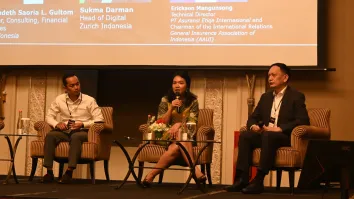



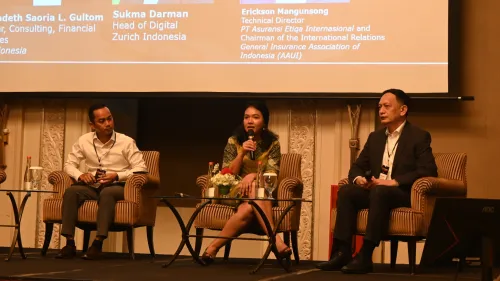



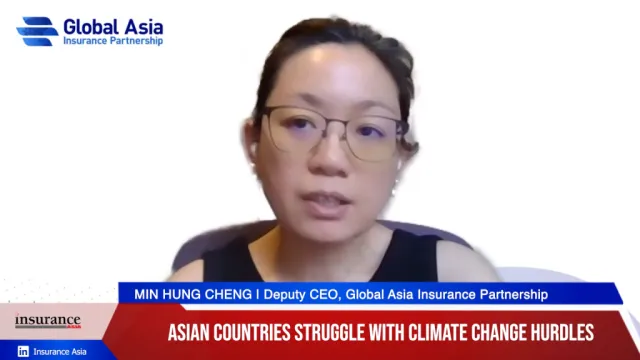
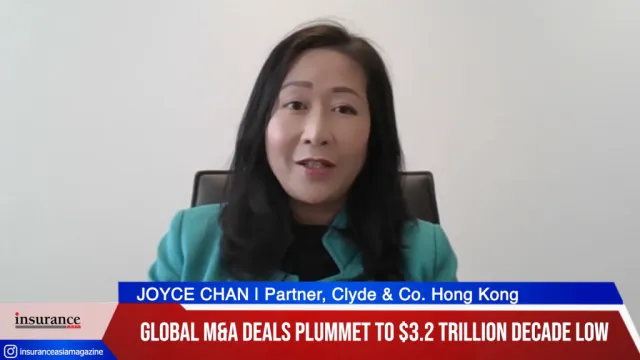


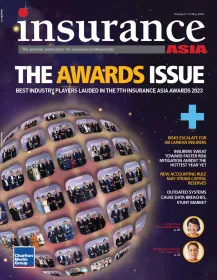
 Advertise
Advertise






